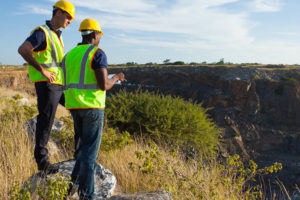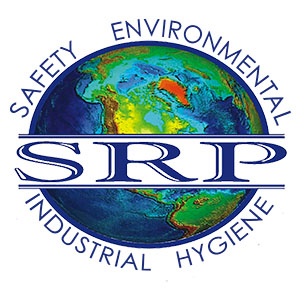 Many people do not know what a Phase 1 Environmental Site Assessment (ESA) is, but choose to get one because they were told to. It is important to understand what an ESA is and how environmental consultants conduct them. A Phase 1 is conducted on behalf of banks, real estate companies, finance companies, insurance companies, and public institutions and agencies. Institutions with financial responsibility, such as banks, lenders, or financiers want to ensure they do not buy a property that could become listed on a state superfund list, or require costly remediation in the future. Landowners such as private companies and public institutions want to ensure that any property they acquire is either free of contamination or that the cost to remediate the contamination can be factored into
Many people do not know what a Phase 1 Environmental Site Assessment (ESA) is, but choose to get one because they were told to. It is important to understand what an ESA is and how environmental consultants conduct them. A Phase 1 is conducted on behalf of banks, real estate companies, finance companies, insurance companies, and public institutions and agencies. Institutions with financial responsibility, such as banks, lenders, or financiers want to ensure they do not buy a property that could become listed on a state superfund list, or require costly remediation in the future. Landowners such as private companies and public institutions want to ensure that any property they acquire is either free of contamination or that the cost to remediate the contamination can be factored into
the selling price.
Read More About Why You Need a Phase I
To sum it up, a Phase 1 reduces the buyers liability for a costly remediation of harmful contaminants on the property. It is extremely important to do your due diligence when purchasing a commercial or agricultural piece of property.
Here are six things you should do before requesting a Phase 1:
- Ask for an estimate range. There are several factors that affect the price of a Phase 1 ESA. Location, acreage, buildings present, potential for underground storage tanks or chemical storage containers, and surrounding properties are just a few. For example, a piece of property in a rural, less inhabited area of the country may be less expensive to perform a Phase 1 compared to a property in an urban, highly populated city. The urban property would most likely have more historical records and adjacent properties to investigate. Also, the piece of property in the city could have easily been used by several different types of companies.
- Be cautious about cheap pricing. If the consultant quotes you a couple hundred dollars to perform the Phase 1, start asking questions. The cheapest price does not mean quality service. A substantial amount of experience, time and research is required to perform a thorough Phase 1. If the consultant is able to give you a full report for $200, he or she may be cutting corners or not providing a proper investigation, which could leave you liable for a costly remediation if potential contaminants are found at a later date.
- Verify that the consultant uses ASTM standards. Phase 1 ESA’s should be conducted using ASTM 1527-13 Standards. These standards outline customary practices that should be followed when conducting a Phase 1. This allows the environmental consultant to act on your behalf and qualify the client for limitations on liability.
- Consult with an environmental professional and consultant. An environmental professional is someone who:
- Holds a current Professional Engineer’s or Professional Geologist’s license and has 3 years of full-time relevant experience; or
- Is licensed or certified by the federal government, a state, tribe, or U.S. territory to perform environmental inquiries and has 3 years of full-time relevant experience; or
- Has a Baccalaureate or higher degree in science or engineering from an accredited institution and has 5 years of full-time relevant experience; or
- Has 10 years of full-time relevant experience.
- Consider Non-Scope Items. Items like asbestos surveys, lead surveys and mold assessments are examples of non-scope items. If there are buildings on the property that would need to be demolished or repaired, it is recommended to have a licensed or certified environmental professional to sample for asbestos, lead and mold. Having asbestos, lead or mold could affect the purchase price of the property and buildings.
- Ask about insurance. The environmental consultant you work with should carry commercial, professional and pollution liability. This not only protects the consultant, but also you as the client.
BONUS TIP: Make sure you hire a reputable environmental consultant. Ask for references or examples of Phase 1 reports. A dishonest consultant could recommend a Phase II when it is not needed, just to make an extra buck. Avoid this by being knowledgable about Phase 1 Environmental Site Assessments and why you need one.
If you have any questions about obtaining a Phase I, call SRP at (318) 222-2364. Our environmental consultants are happy to help.

 ">
">
 ">
">